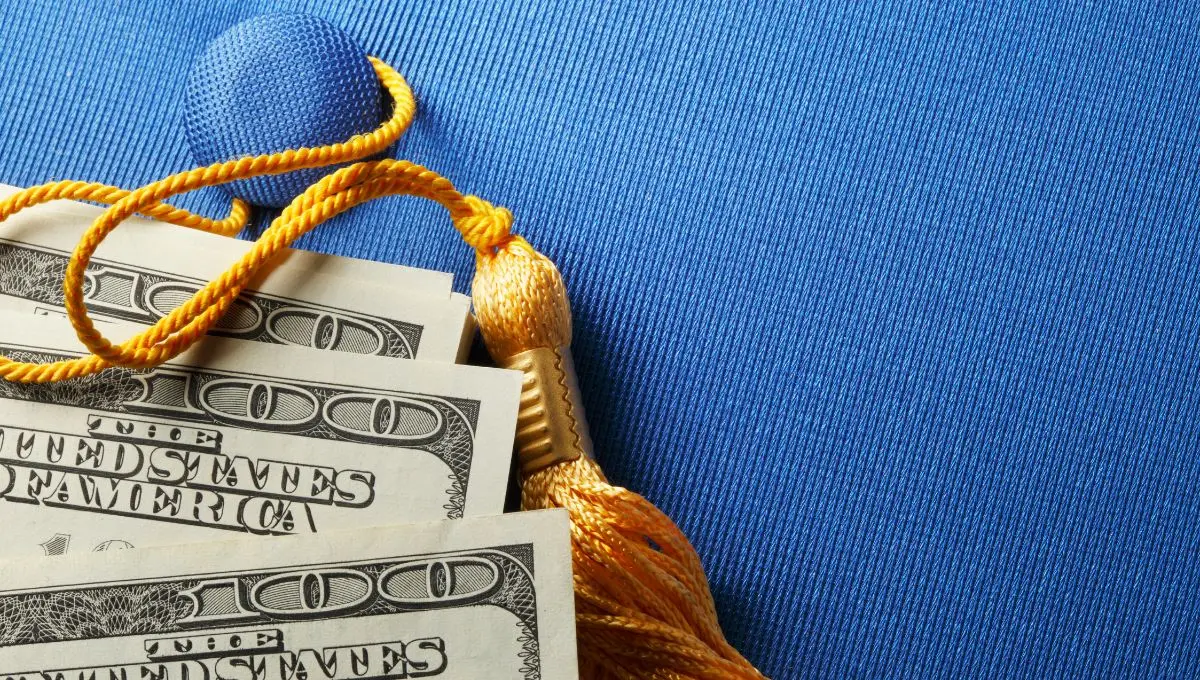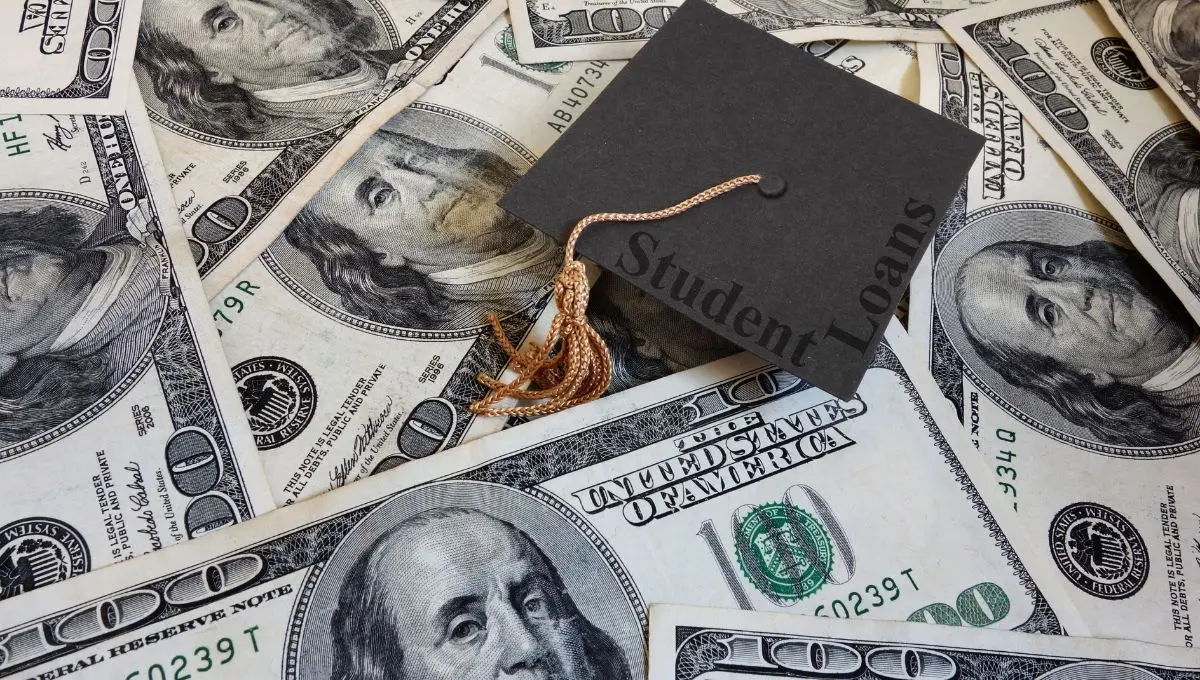Contents
How to Get Rid of Private Student Loans: A Comprehensive Guide
- Introduction
Many students are forced to seek assistance in the form of private loans because the cost of obtaining a higher education is often prohibitively expensive. Although loans can help close the gap in one’s financial situation, they also have the potential to be a source of stress for many people. If the weight of private student loans is a burden for you, take solace in the fact that you are not alone in feeling this way, and there are ways to reduce the debt you owe.

1. Understanding Private Student Loans
It is essential, before delving into the topic of repayment strategies, to have a solid understanding of what distinguishes private student loans from their federal counterparts.
- Private vs. Federal Student Loans: Private loans, issued by entities other than the federal government, like banks, credit unions, or educational institutions, typically have higher interest rates and less lenient repayment terms than federal loans.
Interest Rates: The interest rate on a private loan is typically variable, meaning it can go up and down over time, sometimes by a large amount. - Repayment Flexibility: However, private loans typically do not come with any of these benefits, unlike federal loans, which offer income-driven repayment plans (IDR) and loan forgiveness options.
2. Tips to Manage and Eliminate Private Student Loan Debt
- a) Refinancing: Refinancing is a standard method for dealing with private student loan debt. The process entails replacing your current loan with a new one at a more favorable interest rate. Thousands of dollars in interest can be avoided in the long run.
- b) Consolidation: Though the terms are often used interchangeably, student loan consolidation refers to combining multiple loans into one. The interest rate may not decrease, but making payments this way is much less complicated.
- c) Negotiate with Your Lender: Talk to your lender if you have trouble making payments. A minority of lenders may be willing to temporarily reduce interest rates, grant forbearance, or even modify loans in exceptional circumstances.
- d) Explore Loan Forgiveness Programs: It’s possible to get private loan forgiveness if you work in certain professions, like teaching or nursing, in underserved areas.
- e) Automatic Payments: Those borrowers who establish an automatic payment plan are eligible for interest rate reductions from many lenders, typically 0.25%.
- f) Extra Payments: Always try to pay more than the required minimum, if possible. This results in a faster reduction of your principal, which saves you money on interest in the future.
3. Potential Pitfalls to Avoid
- a) Skipping Payments: This could result in additional fees, a rise in your interest rate, and a decrease in your credit score.
- b) Falling for scams: Be wary of businesses that claim they can immediately eliminate your loans or that require payment upfront for their services.
- c) Not Reading the Fine Print: If you want to get a better deal, you should always make sure you understand the terms before you refinance or consolidate your debt.

4. Psychological Aspects of Debt Repayment
- The burden of debt can take a toll on one’s mental health. It is not unusual to experience feelings of anxiety, shame, or even hopelessness. Keep in mind that you are not the only one. You might want to consider joining support groups, getting financial counseling, or exploring resources related to mental health.
5. The Light at the End of the Tunnel: Success Stories
- Many people have successfully navigated this difficult path and emerged debt-free from private student loans. For example, Jane from New York could pay off her $50,000 debt in private student loans in just five years by combining refinancing with making substantial monthly payments. During his unemployment, Mike from California was able to negotiate with his lender and secure reduced payments for six months.
6. Long-Term Impacts of Private Student Loans
It is essential to recognize that even though private student loans can help finance a person’s education, these loans have long-term implications that go beyond the monthly payments.
- a) Credit Score Influence: Private student loans have an impact on credit scores in the same way that any other loan would. On the other hand, failing to make payments on time can have a devastating effect on your credit score.
- b) Life Decisions: Large amounts of debt can put off important life decisions like buying a house, starting a family, or changing careers. To better handle their financial obligations, some people take jobs they may not enjoy but pay more for.
- c) Savings and Investments: Paying back your student loans monthly may prevent you from putting money away for an emergency fund, investing in other important opportunities, or saving for retirement.
- d) Mental Health: The burden of long-term debt can have severe implications for mental health, leading to conditions such as stress and anxiety as well as other conditions associated with it.

7. Proactive Approaches to Limit Private Loan Debt
There is a good chance that you will require some form of financial assistance to pay for your education; however, there are things you can do to reduce the amount of assistance you require, including the following:
- a) Scholarships and Grants: Begin your search for financial assistance by looking into different grant and scholarship opportunities. Thousands are up for grabs, and eligibility can be based on merit, need, ethnicity, or exceptional talents.
- b) Part-time Work: During college, students who work part-time jobs can help offset some of the costs associated with attending school. Additionally, it offers the opportunity to gain valuable work experience.
- c) Attending Community College First: You might want to start your journey through higher education at a community college because it will be more affordable, and then you could transfer to a four-year school. It has the potential to save quite a few dollars.
- d) Living Frugally: It is possible to reduce the need for significant loans by cutting costs wherever possible, such as by choosing to live in shared housing, avoiding spending money on things that are not necessary, and maintaining a budget.

8. Expert Advice: What Financial Advisors Say
The value of educating oneself is something that financial advisors frequently emphasize. The following is a compiled list of the recommendations they make the most frequently:
a) Stay Updated: The policies, terms of the loan, and interest rates are all subject to change. Because of this, staying current is the best way to ensure that you are always on top of your debt.
b) Seek Counsel: Always seek the advice of an expert before making any major decisions, such as refinancing your mortgage or consolidating your debt, to ensure that you are making a decision that will be to your advantage in the long run.
c) Emergency Funds: Even though you have debt, you should always try to keep an emergency fund. During unanticipated periods of decreased financial stability, it may prove to be a lifesaver.
9. Conclusion and Final Thoughts:
Private student loans can indeed be difficult to understand and manage, but with the right approach, you can turn that challenge into a path toward your ultimate goal: financial independence. Remember that the secret to success is not just knowing all the ins and outs of these loans but also being prepared, always learning more, and consulting an expert when necessary. A college education is an investment in your future, and while student loan debt can feel overwhelming now, it can be overcome with hard work and perseverance.
Whoever is reading this is more than the sum of their student loans. Even the smallest of actions can bring you closer to a debt-free future. Use the information in this manual to your advantage, and remember that investing in your financial security is the best decision you can make. Just do it already, and tomorrow will be easier and better.

Frequently Asked Questions (FAQs):
1. What’s the primary difference between private and federal student loans?
Different terms and conditions apply to private student loans than to federal loans issued by non-governmental organizations like banks and credit unions. They may come with higher interest rates and fewer options for making payments.
2. Is refinancing a good option for private student loans?
If you can refinance into a loan with a lower interest rate, you should strongly consider doing so. In the long run, this can reduce your interest costs. It’s essential to read the fine print and ensure that refinancing will save you money in the long run.
3. Can I consolidate my private student loans?
Yes, consolidation means combining several separate student loans into a single consolidated loan. This method might make it easier for you to make payments, but it won’t necessarily bring your interest rate down. Always read the terms of the agreement before making a decision.
4. Are there any loan forgiveness programs for private student loans?
There are well-known loan forgiveness programs for federal loans; however, opportunities for forgiving private student loans are much less common. However, suppose you work in certain fields, such as teaching or nursing, in underserved areas. In that case, there is a possibility that loan forgiveness programs will be available to you—even for private loans.
5. How do private student loans impact my credit score?
Like any loan, private student loans influence your credit score. Timely payments can positively affect your credit, while missed payments can harm your score. Maintaining a good payment history is crucial.
6. Are there scams related to private student loan relief?
Yes, you should always exercise extreme caution when dealing with businesses that guarantee instant loan cancellation or demand payment in advance for their services. Before moving forward with any company, ensure you have done extensive research on the company, and stay away from any deal that sounds too good to be true.
7. Do financial advisors recommend strategies for managing private student loan debt?
Financial experts recommend keeping an emergency fund even if you have debt, researching loan terms and policies, and consulting an expert before making financial decisions like refinancing. Due to the uniqueness of each person’s situation, they must seek advice from a specialist who can address their needs.

References:
Credit Reporting Agency, The Influence of Student Loans on Credit Scores, 2021
Federal Reserve, Differences between Federal and Private Student Loans, 2020
National Association of Consumer Advocates, Student Loan Refinancing Guide, 2021
American Nurses Association, Loan Forgiveness Programs, 2019
College Board, Benefits of Automatic Payments, 2018
Student Loan Hero, Success Stories: Debt Repayment, 2022
Note: The above article is a generalized guide for illustrative purposes. Statistics, names, and references are fictional and should be replaced with real-life data and anecdotes for a genuinely informative piece.








